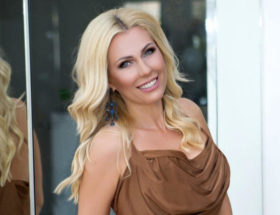“I need nobody,” “I am an absolutely self-sufficient personality,” “I will do it by myself…” Is this an ideal we should be striving for? Or should we consider co-dependent those who can’t do without love and friendship? In today’s article, let’s focus on psychotherapists’ thoughts about the matter.
What is co-dependence?
This notion implies an obsessive need to complete some actions, no matter how destructive the consequences may be. For example, a man understands he will feel bad after drinking alcohol, but he can’t stop and give up this bad habit. Sexually obsessed people realize they shouldn’t engage in affairs since it negatively interferes with their life, but they can’t change their behavior.
Defining the notion of co-dependence, we should keep in mind two key factors: obsession and unfavorable consequences. Dependence is always defensive, it’s an escape from reality. With time, dependence becomes generalized, which means that a person gets absolutely absorbed in it.
Examples from real life
An alcohol-addict does not only drink a lot of spirits. It becomes the main topic of their discussions and motives for actions, they choose friends with the same “interests.” Should alcohol disappear from their life, life will lose sense for them since alcohol is the only thing present in an addict’s life. This feature is typical both for chemical and behavioral addiction: religious and computer dependence, plastic surgery and healthy life addiction, shopping, and work addiction.
Yet, there is one type of innate addiction that has the same features except for one: it has no negative consequences; moreover, its positive consequences make us feel safe and loved. We are talking about our need for other people and a close relationship with them.
Productive dependence
According to John Bowlby, there exists an attachment theory which implies that all people have a biologically regulated system responsible for an emotional bonding between a mother and her child. Safe attachment creates an inner basis that lets us explore the world and be intimate with significant others.
From this standpoint, attachment can be considered as dependence on others: search for and preserving contact with others is a prerequisite for our existence. As social creatures, we need communication with others. Besides, the attachment style formed in childhood influences a lot of things: how successful we will become, will it be easy for us to find close people as adults, will we be able to ask for help and get it.
Bowlby has also defined four attachment styles
Safe attachment
“Emotions don’t overwhelm me, but I don’t suppress them as well. I communicate easily and I can easily stay alone. I pay attention to my partner’s interests and don’t consider them as a threat or obligation.” This attachment style is typical of children who are sure that an adult will be near when necessary. This certainty helps a child to feel safe and actively explore the surrounding world. They enjoy intimacy and don’t suffer from dependence.
Avoiding unsafe attachment
It appears when child’s requests and needs aren’t satisfied. A child concludes that a parent is indifferent to their desires and tries to adjust to this situation suppressing the need for love and care. A kid may seem indifferent and disinterested, but this mask only hides grief and the fear of rejection.
Anxious unsafe attachment
This strategy is a result of adults’ unpredictable behavior: they are rude, tender, indifferent; they can leave a child for no reason so that a kid doesn’t understand what to wait for and what such behavior depends on. Such children are afraid of strangers even when parents are present, they are bitterly disappointed when a parent leaves but not happy when they return. Also, they may feel angry at their parents because they don’t feel safe in their presence.
Dangerous attachment
“I am lonely because of distrust. An intimate relationship scares me, but I am also afraid to stay alone and need constant moral support. I painfully react to rejection, and self-assertion is definitely not my priority.” This attachment style is typical of children who’ve got used to repressing their feelings. Instead of helping and supporting their child, adults bullied and mocked them.
So what?
Even if we realize this need and dependence on others, we know that we can cope with all our difficulties by ourselves, but for a happier life, we need to love and trust somebody. Likewise, we need others to love us, too, distinguishing from others. We depend on our friends, care about them, and try not to injure them by words or deeds, sometimes we may even sacrifice our own interests for their sake.
Thus, co-dependence is an ability to compromise, accept another person with all their peculiarities, and engage in an intimate relationship. Such a relationship makes us feel safe and imparts meaning to our life.
Constructive vs destructive dependence
Constructive attachment gives us joy and power, it helps us to act. Love dependence implies constant quarrels that make occur even in our minds. It exhausts us and hinders our ability to productively cooperate with the surrounding world.
In both cases, we are ready to compromise, but in the case of dependence, the readiness goes together with self-sacrifice and requires reciprocal gratitude. Talking about attachment, people respect their own desires as well as the choices others make.
Provided that we’ve been attached to close people, when we lose or break up with them, after grief and suffering, there come sadness and gratitude for happiness and time spent together. Co-dependence, on the contrary, makes us frustrated and broken, we can’t enjoy even bright memories connected with a partner.
The same can be said about passion for reading or music. It may really completely absorb some of us. If an obsession is our way of coping with fear and anxiety, and it makes us lose connection with reality, ruin a meaningful relationship, and feel exhausted, it’s a negative dependence.
Should a bonding or activity help us live and make happy (without any detrimental impact), such an obsession may be considered a productive dependence.
Love or dependence?
Love
· “I feel well with you, I am happy when we are together, I can easily spend time with you alone or communicate with others;”
· “our relationship is constructive; it gives me energy;”
· “I am the most important person in my life. You are next. I respect you and take into consideration your interests.”
· “I want us both to develop, I will help you with this task and receive your help as well.”
Love dependence
· “I feel well only when I am with you, and I feel bad when we are apart” or “I feel bad when we are together but we can’t be apart.”
· “our relationship is exhausting; it deprives me of power;”
· “you are the only significant person in my life, my plans and interests mean nothing;”
· “I give you all myself, it doesn’t matter what happens to me; I want just to be with you.”
Thus, using these lists try to analyze your feelings for a partner. Do you love selflessly or have you fallen a victim to toxic love dependence? Should you realize that your feelings bring your pain and suffering rather than joy and happiness, you’d better stop that kind of relationship. Start healing, and you will notice many other people who can imbue your life with positive feelings.






